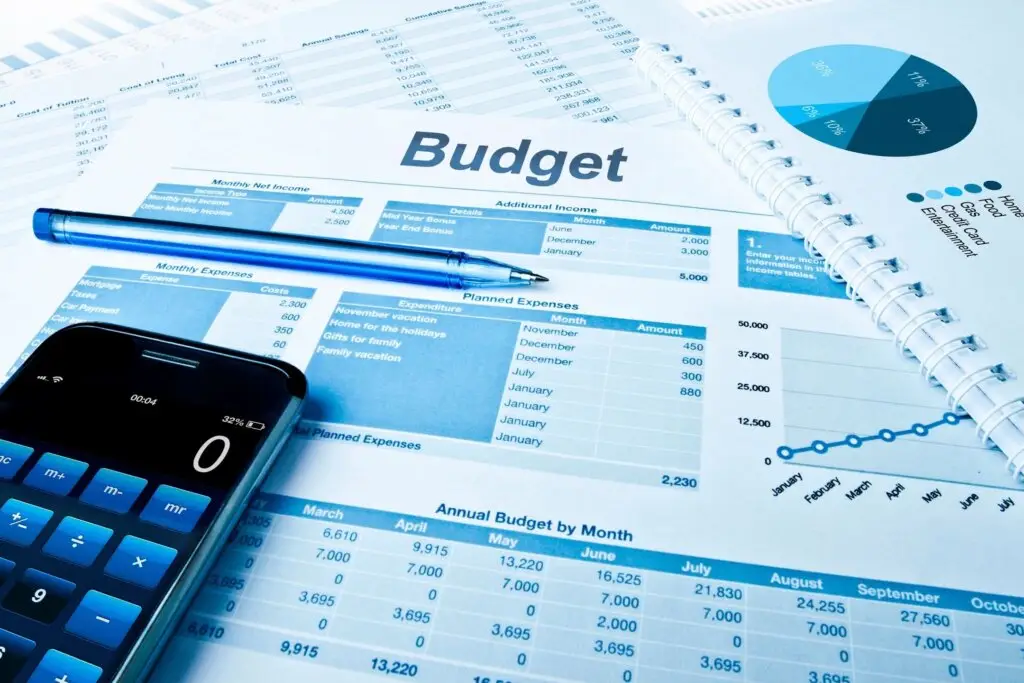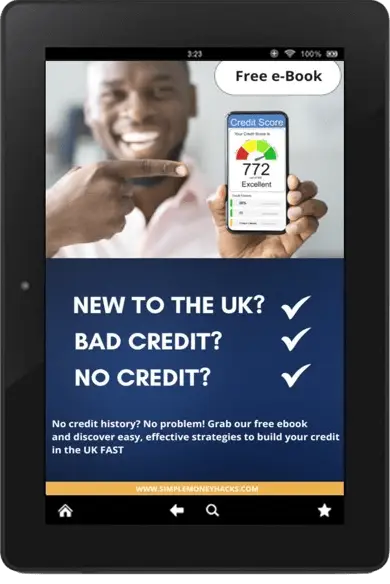This article is about achieving Financial Peace of Mind, but first, I’d like to ask you a question. Have you ever found yourself awake at night, worrying about your finances? You think your finances are in such bad shape, and you don’t even know where to begin. Well, I am here to tell you that you’re not alone. Many people feel this way. I was in the same situation a few years ago. Financial stress is common, but achieving financial peace of mind is possible. This guide will help you move from financial turmoil to financial peace. It covers the basics of money management, setting you on the path to financial tranquillity.
Financial Peace: Understand Your Current Financial Position
Before you can achieve financial peace, it’s essential to understand where you currently stand. Knowing our current financial position allows us to chart our way to where we want to be. Start with a self-assessment. Look closely at your income, expenses, savings, and debts. Knowing your starting point is the first step toward improvement.
Tracking Expenses
One key strategy for gaining financial peace is to track your daily expenses. Whether you use a notebook or an app, record every penny you spend. By doing so, this habit will help you identify where your money goes and where you can cut back. In addition, be strict with yourself and record everything you buy. The idea here is not punishment or taking away the things you love but rather finding things you buy out of habit but don’t necessarily please you.
Financial Peace and Net Worth
Calculating your net worth is another crucial step. Add all your assets (like savings, property, and investments) and subtract your liabilities (debts and obligations). This number gives you a snapshot of your financial health and a baseline for measuring your progress. Ideally, we want to end up with more assets than liabilities.
Financial Peace: SMART Goals
Use the SMART criteria to ensure your goals are practical: Specific, Measurable, Achievable, Relevant, and Time-bound. For instance, instead of saying, “I want to save money,” specify, “I will save £500 in the next six months.”
Short-Term Goals
Setting short-term financial goals is essential for maintaining motivation. Whether saving for a holiday or paying off a credit card, these goals are achievable and provide quick wins on your journey to financial peace. For example, at the start of my financial rejuvenation, my short-term goal was to save £500 for emergencies within three months.
Long-Term Goals
While short-term goals are important, long-term goals are the foundation of lasting financial peace. These might include buying a home, starting a business, or retiring earlier than 65 so you can enjoy life and perhaps travel the world while still young. Setting these milestones helps you stay focused on the bigger picture.
>>>>”><<<<< Related Post: Setting SMART Goals >>>>>
Financial Peace: Creating a Budget
Creating a budget is a fundamental step towards financial peace. It is more than tracking expenses. Tracking expenses is concerned with cutting out unnecessary expenses, while a budget is a statement of “this is how I will spend my money going forward”. List all your income sources and expenses, and allocate your money accordingly. This process helps you live within your means and plan for the future.
Types of Budgets
There are various budgeting methods to consider. The zero-based budget allocates every pound to a specific purpose, while the envelope system uses cash for different spending categories. Choose the one that best fits your lifestyle.
Sticking to Your Budget
Maintaining a budget can be challenging but crucial for financial peace. Review your budget regularly and make adjustments as needed. Celebrate small victories to stay motivated.

Financial Peace: Understanding Debt
Not all debts are created equal. Understanding the different types of debt, such as credit card debt, personal loans, payday loans, student loans, and mortgages, is critical to managing them effectively. Payday loans are the worst because of the interest rates charged. Followed closely by credit card debts if you don’t usually pay off what you owe on your credit card monthly. Not paying off your credit card every month could be a sign that you are living beyond your means. Consider common debt traps, such as payday loans and high-interest credit cards. Avoid these pitfalls by planning your finances carefully and seeking better alternatives when necessary.
Debt Reduction Strategies
Consider debt reduction strategies like the snowball and avalanche to achieve financial peace. The snowball method involves paying off the smallest debts first, while the avalanche method focuses on the highest interest rates. Both can be effective in different scenarios. My favourite is the Avalanche method because the overall interest you pay is lower. It does require commitment as it may not offer the quick wins of the snowball method. If you have multiple debts and want to find which strategy works best for you, click here for the debt repayment strategies.
Financial Peace: Building an Emergency Fund
An emergency fund is your financial safety net, providing peace of mind during unexpected situations. This fund can cover unforeseen expenses, such as car repairs, ensuring you don’t rely on debt. However, the amount you save for emergencies depends on where you are in your financial control journey. Generally speaking, there are two approaches to building emergency funds: either if you are in consumer debt or if you don’t have consumer debt.
Building an Emergency Fund When in Debt

As already mentioned, not all debts are created equal. Credit card debts, as well as payday and personal loans, can have very high interest rates. Paying this high interest is like throwing money away, which will not help our quest for financial peace, so make paying off these debts a higher priority. Save a small emergency fund of between £500 and £1,000, then focus all your energy on paying down high-interest debts.
We are fortunate in the UK because we have the NHS. For instance, in the US, people don’t have access to free healthcare. For Americans, the number one emergency tends to be medical emergencies. £1,000 is the standard recommendation for emergency funds. But I got away with just having £500 because I didn’t need to worry about medical emergencies; I took public transport and had insurance to cover home emergencies. We would discuss how low-cost insurance can be part of your contingent plans for dealing with emergencies later.
Building an Emergency Fund when not in Debt
The standard guideline is to save three to six months of living expenses. This amount provides a buffer against job loss or other significant financial disruptions.
Saving Tips
Building an emergency fund can be challenging, especially if you are not used to saving. However, start small by setting aside a fixed amount each month. Additionally, cut unnecessary expenses and consider automating your savings to make the process easier. Ultimately, saving money is a cornerstone of financial peace. In the long run, it allows you to handle unexpected expenses, pursue opportunities, and achieve your goals without financial stress.
Financial Peace: Investing
People often ask me about the difference between saving and investing and whether we need both. The answer is yes, we need both. Saving is storing money for short-term needs, while investing is putting our money to work to earn more money for us in the long term. Start with saving, and once you’ve built up six months’ worth of emergency funds and saved for other short-term needs (think deposit on a home purchase, wedding or vacation), it’s time to focus on investing.
Investing helps grow your savings and provides long-term financial security. Start with the basics: stocks, bonds, and mutual funds. Additionally, spreading your money across different companies and industries is called diversifying. Diversifying your investments reduces risk and can increase profits.
Many picture investing as flashing screens and people shouting on trading floors. In reality, it’s simpler. You can make regular payments into a low-cost, low-risk investment account. Your money gets divided and invested in various top companies. Even if some companies you’ve invested in face tough times, others will do well, balancing things out.
Types of Investments
Explore various investment options to find what suits you best. Stocks can offer high returns but come with higher risk. Bonds are more stable but may offer lower returns. Mutual funds provide diversification, balancing risk and reward.
>>>>”><<<<< Related Article Investing >>>>>
Financial Peace: Protecting Your Finances
Insurance is a vital component of financial peace. I mentioned earlier that having the right insurance was one of my emergency plans. Health, life, and property insurance protect you and your family from significant financial loss. Understand the various options and choose the right policies.
Identity Theft Protection
Safeguarding your financial information is crucial. First, use strong passwords and monitor your accounts regularly.
Furthermore, be vigilant when you receive unbelievably generous offers or requests for information from companies you know, like your bank. If you get emails with clickable links asking for personal information or claiming there is a problem, do not click those links. Instead, contact your bank by calling them or using your usual means of communication. Never call your bank using the contact information found in suspicious emails.
The latest scam I’ve seen involves sending documents for me to sign. However, one easy way to check if these are legit is to study the email address they came from. Usually, the email addresses look shady. So, never follow the instructions in such emails. Instead, contact the company using contact details you’ve used before. Never use the information from suspicious emails.
Legal Documents
Legal documents such as a will and power of attorney guarantee your wishes are respected when you’re no longer here. They safeguard your loved ones and offer financial reassurance, knowing everything is handled. A will is important, even if you believe you don’t have much money to leave behind.

Building Financial Literacy
It’s important to keep learning about personal finance to stay in control of your money. Books, blogs like this, online courses, and websites are all great ways to learn more and stay informed.
Follow financial news and trends. Staying updated helps you find and take advantage of new opportunities. For example, Bitcoin was once worth just a few pennies. Now, as I write, each coin is worth £45,000! Think about how many you could have bought when the price was low. This shows how important it is to keep an eye on what’s happening in the financial world.
Community and Support
Finding a financial mentor within your community or joining support groups can provide encouragement and advice. Learning from others’ experiences and sharing your own can be incredibly beneficial.
Maintaining Financial Peace
Regularly reviewing and adjusting your financial plan ensures you stay on track. Therefore, set aside time each month to review your finances and make necessary changes. Furthermore, continue saving regularly, as living within your means promotes long-term financial health and peace.
A Mindset and Attitude that Leads to Financial Peace
Maintaining a positive attitude towards money can significantly impact your financial peace. View challenges as opportunities to learn and grow rather than obstacles.
Conclusion and Key Learnings
Achieving financial peace of mind is a journey, but it’s possible with the right tools and mindset. Start by understanding your financial situation.
- Set goals to propel you towards financial peace
- Create a budget
- Manage your debt
- Build an emergency fund
- Save and invest wisely
- Protect your finances with insurance and stay vigilant.
- Continuously educate yourself and maintain healthy financial habits.
- Share your knowledge with others who want financial peace
Join Us; We are All About Financial Peace
Ready to take control of your finances? Join our email list at Simple Money Hacks for updates on our free course designed to take you from broke to abundance. Together, we can achieve financial peace of mind.





